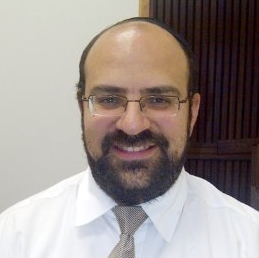
Parshot/Festivals

The true source of success
Rabbi Shmuel Bloch, Hazelwood Shabbos Minyan
”If I use my last $100 and Spatula wins, I will make $300 000,” he excitedly thinks.
However, he is not a total fool. He realises that at a 3000 to 1 shot, Spatula could use some help. So he begins to pray. The race begins and remarkably, Spatula gets off to a great start.
The man prays again. Spatula then gallops valiantly to the middle of the pack. The man’s eyes are starting to widen. The fantasy is alive. His prayers intensify. Sure enough within seconds Spatula is in the lead. Suddenly, Spatula quickens her pace. The man is sweating now. His plea is frantic. His voice is cracking.
To his utter amazement Spatula forges ahead by five lengths. Only seconds separate the horse from the finish line. The man then sits down and says calmly. “Thank you Hashem but I don’t need you anymore. I can take over from here and can do everything myself to ensure Spatula wins.”
This story, from Rabbi Noah Weinberg’s book “What the angel taught you” is silly but conveys a powerful lesson. When we need help we turn to Hashem. However, when everything is fine, one can easily forget the true source of our success.
Such a perspective is not new. In fact Pharaoh himself acted this way in this week’s parshah.
The second of the Ten Plagues was the plague of frogs. This plague was so awful and dreadful that Pharaoh himself called Moses and Aaron and begged them to ask Hashem to end it. Pharaoh then promised to free the Jewish people.
Moses prays to Hashem and all the frogs die. Nevertheless “Pharaoh saw that there had been a relief and kept making his heart stubborn. He did not heed them as Hashem had spoken.” (Shemos, chapter 8 verse 11)
The Kli Yakar (Rabbi Shlomo Ephraim Lunshitz, 1550-1619) points out that regarding no other plague is the word “relief” mentioned. The Kli Yakar explains that when the other plagues ended, all remnants disappeared.
What was unique to this plague was that there were piles of dead frogs all over Egypt. This horrendous sight should have caused Pharaoh to remember the plague and to keep his word. Nevertheless, since there was some relief from the plague, this was enough to cause Pharaoh to remain obstinate and stubborn.
Rabbi Yisrael and Osher Anshel Jungreis in their book “Torah for your Table” explain that Pharaoh’s reaction and subsequent refusal teaches us a frightening reality about human nature. When we are under terrible stress, we call on Hashem to help us and ease our plight and our burdens. However when the crisis does pass, we can fall back into our old habits and negative routines.
The challenge of every person is to recognise that Hashem is in control at all times, even in times of plenty, when everything is going our way and we are successful in everything we do. Recognising that all is a gift and a blessing from Hashem infuses us with appreciation and positivity. Our primary goal that we should always strive for, is to pray from inspiration and gratitude rather than from desperation and anxiety.




